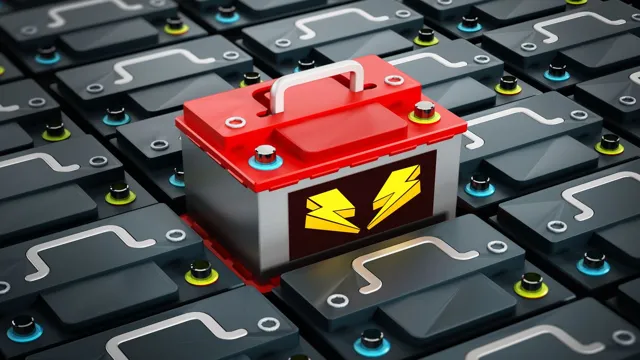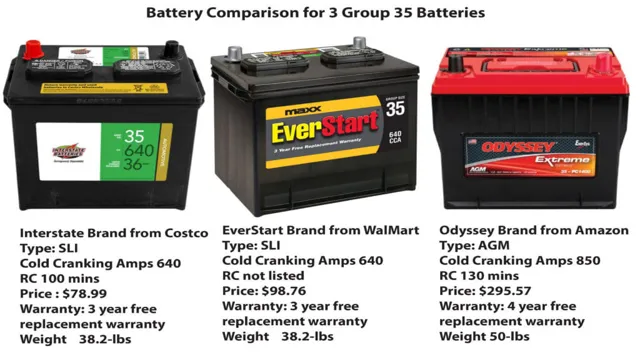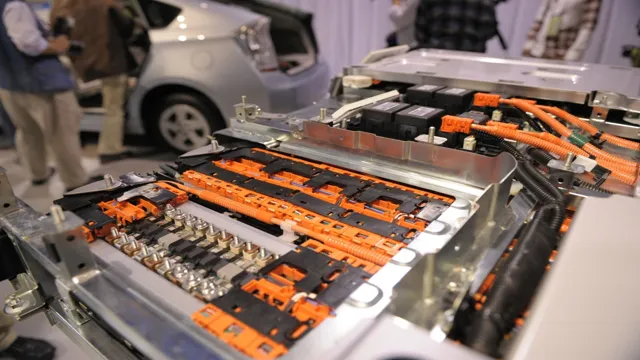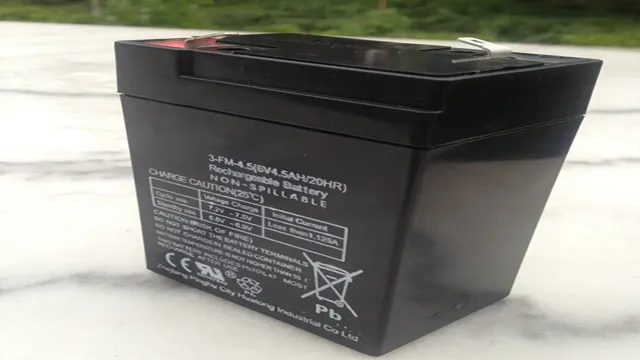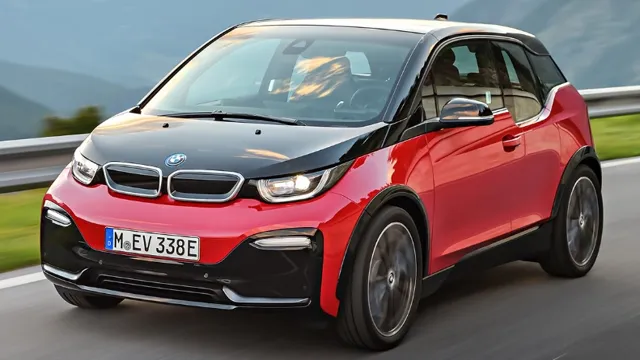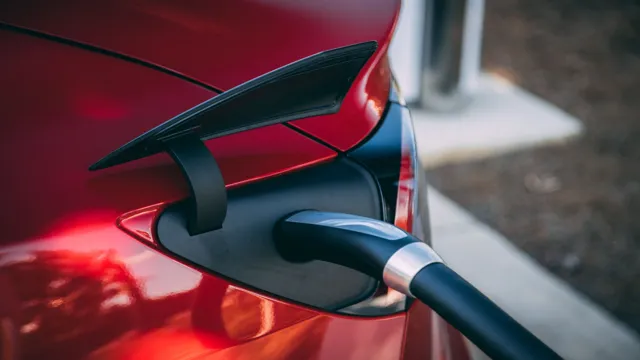Powering up the future: Top Batteries for Electric Cars Companies
Electric cars are becoming more popular by the day, and it’s no secret that batteries play a significant role in making them an eco-friendly option. While fuel efficiency is always a priority, electric vehicle owners also value battery life and longevity. That’s where companies come in, tasked with producing safe, reliable, and long-lasting batteries.
As technology advances, sustainable battery solutions are more in-demand than ever, and the race is on for companies to provide the best options. So who are the leading companies when it comes to powering the future of electric cars with highly efficient batteries? In this blog post, we will take a closer look at some of the most promising players in the industry and their innovative approaches to the critical task of battery production. Let’s dive in and explore!
Overview of Electric Car Batteries
When it comes to electric vehicles, batteries are the heart of the operation. The batteries must provide enough power to drive the car while also being lightweight and long-lasting. Several companies specialize in producing batteries for electric cars, including Panasonic and LG Chemicals.
Tesla also has its own battery manufacturing facility, known as the Gigafactory, which produces batteries not just for Tesla’s cars but also for other uses such as home and industrial energy storage. Other automakers, such as Nissan and BMW, have partnerships with battery manufacturers to ensure a reliable supply of batteries for their electric vehicles. Batteries for electric cars are constantly improving, with the latest models offering greater efficiency, faster charging times, and better range.
As battery technology continues to advance, we can expect to see electric cars becoming even more popular in the coming years.
Types of Batteries Used in Electric Cars
Electric car batteries are a crucial component of any electric vehicle. When it comes to types of batteries used in electric cars, there are a few options available. The most common battery used in electric cars is the lithium-ion battery, which is lightweight and can hold a lot of energy.
Other types of batteries that are used in electric cars include lead-acid batteries and nickel-metal hydride batteries. While these batteries are not as common as lithium-ion batteries, they still have some advantages. Lead-acid batteries are less expensive than lithium-ion batteries, while nickel-metal hydride batteries are more durable and have a longer lifespan.
Overall, the type of battery used in an electric car depends on a variety of factors, including cost, durability, and performance.
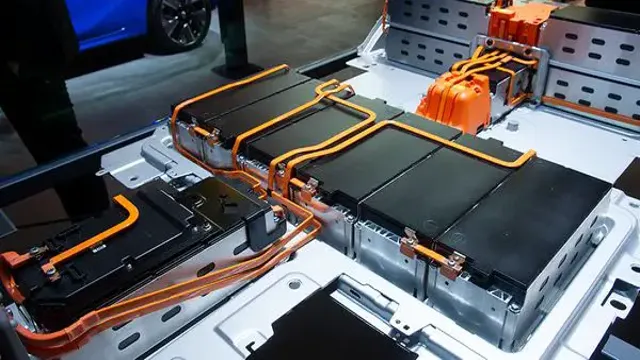
Battery Advancements for Electric Cars Companies
Electric car batteries are a crucial consideration for automakers. Recently, there has been an increase in development of advanced battery technologies, with many companies investing heavily in research and development. Lithium-ion batteries have been the most commonly used technology for electric car batteries, but newer advancements are being made.
Solid-state batteries are an emerging technology that offers increased energy density, longer range, and faster charging times. Additionally, companies are exploring the use of new materials, such as silicon, to improve performance. These new developments are helping to make electric cars a more viable option for consumers by increasing range and efficiency.
As technology continues to advance, the future of electric cars looks bright.
Top Battery Manufacturers for Electric Cars Companies
Batteries for electric cars companies are becoming increasingly popular as the world shifts toward sustainable energy practices. The top manufacturers in the market include Panasonic, Tesla, LG Chem, and BYD. Panasonic, a Japanese company, is known for its high-quality lithium-ion batteries used in a variety of electric cars.
Tesla, on the other hand, has its own battery factory and offers custom-made batteries, known as the “Gigafactory,” which are used in Tesla vehicles. LG Chem, a South Korean company, supplies batteries to numerous car manufacturers, including General Motors and Ford. Lastly, BYD, a Chinese company, manufactures batteries for electric buses and has even developed its own electric car models.
As demand for electric cars continues to grow, these top battery manufacturers will play a crucial role in powering the future of transportation.
Tesla
When it comes to electric cars, the battery is undoubtedly one of the most important features, and Tesla is one of the top manufacturers of electric cars today. However, Tesla not only produces electric vehicles but also produces its own batteries. Tesla’s batteries use cutting-edge technology and are known for their impressive range and longevity.
But they are not the only battery manufacturer in the game. Other notable battery manufacturers for electric cars include Panasonic, LG Chem, and CATL. These companies are trusted by many automakers and are constantly striving to improve their batteries to provide greater range, faster charging times, and better performance overall.
So, while Tesla may be the most widely recognized battery manufacturer for electric cars, other companies are hot on its heels and making significant strides in battery technology.
LG Chem
LG Chem is one of the top battery manufacturers for electric car companies. The company has been around for more than seven decades and has an extensive global presence. LG Chem produces batteries with high energy density, which means that they can store a lot of energy in a smaller package, making them ideal for electric vehicles.
Additionally, the company has invested heavily in research and development and has been able to improve the performance and reliability of their batteries over the years. LG Chem also offers a range of battery types, including lithium-ion, polymer, and prismatic, to cater to different types of electric cars and customer needs. With a commitment to innovation and sustainability, LG Chem is poised to remain a major player in the electric vehicle battery market.
Panasonic
When it comes to the top battery manufacturers for electric cars, Panasonic is undoubtedly one of the leading companies in this industry. The company is one of the few that enjoys a long-term partnership with Tesla, providing battery cells for their electric vehicles. Panasonic has also branched out to produce its line of EV batteries, with the upcoming launch of their new “2170” model set to revolutionize the EV industry.
They boast an energy density of 250 watts per kilogram, which is an impressive feat that will result in an extended driving range for electric vehicles. Moreover, Panasonic has invested in research and development to enhance the durability and safety of their batteries. This will undoubtedly help make electric cars safer and more reliable for drivers who are transitioning from fossil fuel-powered vehicles to electric vehicles.
In conclusion, Panasonic is one of the best battery manufacturers for electric cars, bringing innovative technology that contributes to the growth and sustainability of the EV industry.
Challenges Facing the Electric Car Battery Industry
The electric car industry is growing at an unprecedented rate and the demand for batteries for electric cars has never been higher. With this growth, comes a multitude of challenges facing the battery industry. The cost of producing high-capacity batteries remains relatively high which makes it difficult for EVs to compete with their gasoline-powered counterparts.
Furthermore, the limited driving range of most electric vehicles means that development is needed to increase battery ranges and optimize charging protocols. Other challenges include the large amount of mining and refining that’s required to extract the necessary materials used in the production of these batteries. This results in heavy environmental consequences and requires proper disposal and recycling of these batteries.
Battery technology is continuously evolving and finding ways to address these challenges requires innovative solutions by batteries for electric cars companies to ensure that electric cars remain an environmentally responsible mode of transportation with immense potential.
Costs of Production and Materials
The electric car battery industry faces significant challenges when it comes to the costs of production and materials. Battery cells require a variety of materials, including cobalt, nickel, and lithium, which are costly and in limited supply. In addition to material costs, the complex manufacturing process required to produce batteries is also expensive, with research indicating that over 75% of battery manufacturing costs come from the costs of production.
Another significant cost is the need for infrastructure to support electric vehicles, such as charging stations and battery recycling facilities. As a result, electric car manufacturers must find ways to reduce production costs while still producing high-quality batteries that can power vehicles with increasing ranges. The remaining question is how to make electric cars more accessible and affordable for the majority of consumers, and this presents a challenging predicament for manufacturers.
Environmental Impacts of Battery Disposal
As the electric car industry continues to grow, so does the issue of battery disposal. These batteries can have significant environmental impacts if not handled properly, as they contain toxic chemicals and heavy metals. However, the recycling process for these batteries is complex and expensive, leading to challenges for the electric car industry.
One solution being explored is the development of more sustainable and recyclable battery materials, such as lithium iron phosphate batteries. Another challenge facing the industry is the lack of infrastructure for proper battery disposal and recycling. As more electric cars hit the roads, it is important to address these challenges and ensure that the environmental benefits of electric cars are not outweighed by the negative impacts of battery disposal.
Future of Electric Car Battery Technology
The future of battery technology for electric cars looks promising, with many companies investing heavily in R&D to come up with better, more efficient solutions. Some notable companies that are making strides in this area include Tesla, whose new “million-mile” battery is expected to have a lifespan that is up to 10 times longer than traditional lithium-ion batteries. Other companies, such as QuantumScape and Solid Power, are also developing solid-state batteries that promise to offer better performance and longer range compared to current battery technologies.
As the race to create more sustainable, eco-friendly transportation options heats up, it’s clear that batteries for electric cars will play a critical role in shaping the future of mobility. By continuing to push the boundaries of what is currently possible, these companies are helping to make electric vehicles more accessible and practical for everyone.
Conclusion
In conclusion, batteries for electric cars have become a hot topic in the automotive industry. Companies are racing to develop high-performing, longer-lasting, and more affordable batteries to keep up with the growing demand for electric vehicles. As the world shifts towards sustainability, these batteries will play a crucial role in reducing carbon emissions and creating a cleaner future.
So let’s keep our eyes on the road and our hands on the wheel, because the race to dominate the battery market is on! May the best battery company win, but let’s not forget that the real winner is ultimately the environment and all of us who call it home.”
FAQs
What are some popular companies that manufacture batteries for electric cars?
Some of the popular companies that manufacture batteries for electric cars include Tesla, LG Chem, Panasonic, and Samsung.
What types of batteries are commonly used in electric cars?
The most commonly used types of batteries in electric cars are lithium-ion batteries, nickel-metal hydride batteries, and lead-acid batteries.
How long does it typically take to charge the battery of an electric car?
The time it takes to charge the battery of an electric car can vary depending on the battery capacity and the charging method, but it can take anywhere from 30 minutes to several hours.
Is it possible to replace the battery of an electric car?
Yes, it is possible to replace the battery of an electric car when its performance starts to degrade, but it can be a costly process depending on the car model and the type of battery needed.
What advancements are being made in the field of electric car batteries?
Some of the advancements being made in the field of electric car batteries include the development of solid-state batteries, which have a higher energy density and are safer than conventional lithium-ion batteries, and the exploration of new battery chemistries, such as sodium-ion or magnesium-ion batteries.
